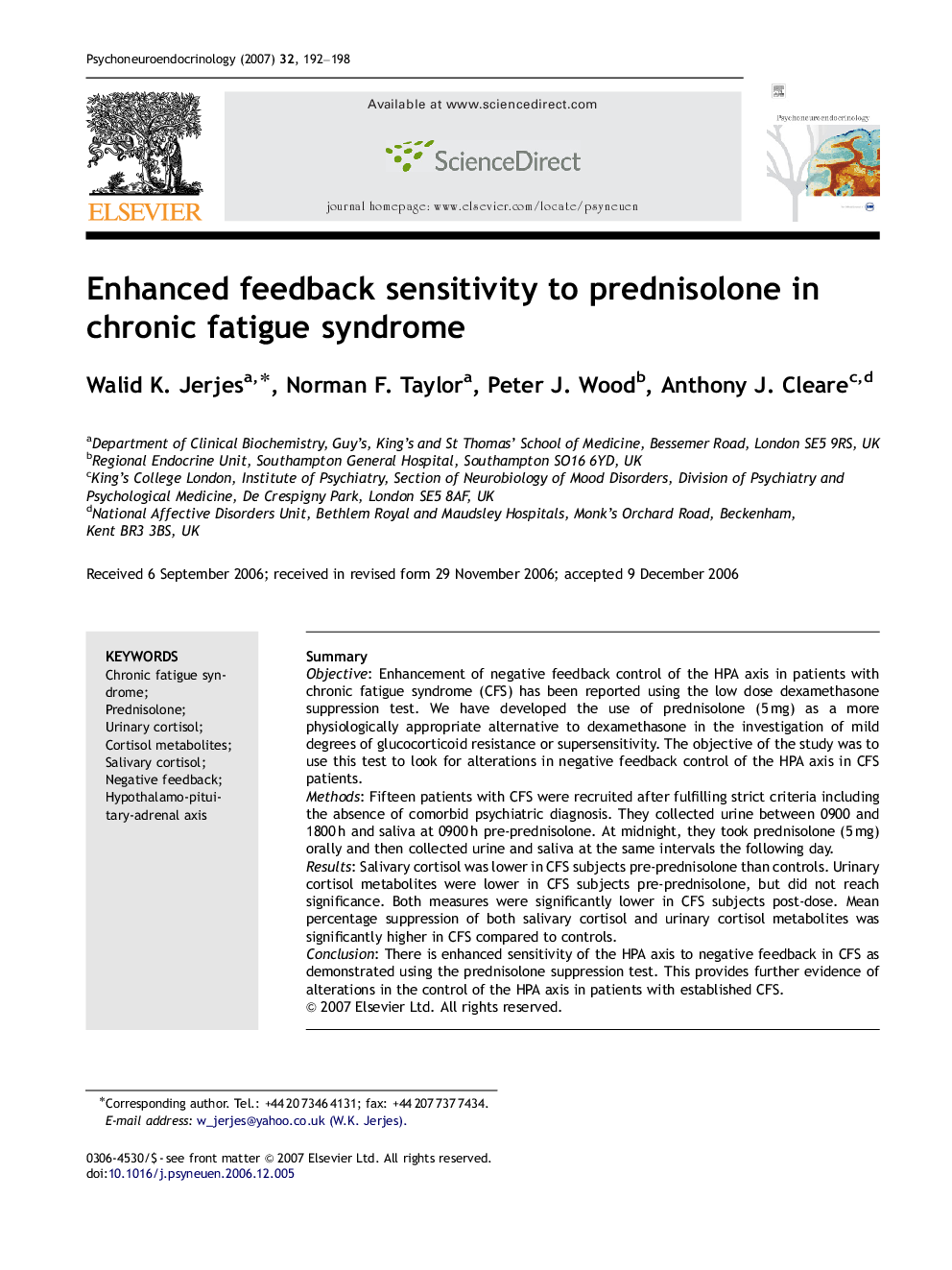| Article ID | Journal | Published Year | Pages | File Type |
|---|---|---|---|---|
| 337203 | Psychoneuroendocrinology | 2007 | 7 Pages |
SummaryObjective: Enhancement of negative feedback control of the HPA axis in patients with chronic fatigue syndrome (CFS) has been reported using the low dose dexamethasone suppression test. We have developed the use of prednisolone (5 mg) as a more physiologically appropriate alternative to dexamethasone in the investigation of mild degrees of glucocorticoid resistance or supersensitivity. The objective of the study was to use this test to look for alterations in negative feedback control of the HPA axis in CFS patients.Methods: Fifteen patients with CFS were recruited after fulfilling strict criteria including the absence of comorbid psychiatric diagnosis. They collected urine between 0900 and 1800 h and saliva at 0900 h pre-prednisolone. At midnight, they took prednisolone (5 mg) orally and then collected urine and saliva at the same intervals the following day.Results: Salivary cortisol was lower in CFS subjects pre-prednisolone than controls. Urinary cortisol metabolites were lower in CFS subjects pre-prednisolone, but did not reach significance. Both measures were significantly lower in CFS subjects post-dose. Mean percentage suppression of both salivary cortisol and urinary cortisol metabolites was significantly higher in CFS compared to controls.Conclusion: There is enhanced sensitivity of the HPA axis to negative feedback in CFS as demonstrated using the prednisolone suppression test. This provides further evidence of alterations in the control of the HPA axis in patients with established CFS.
